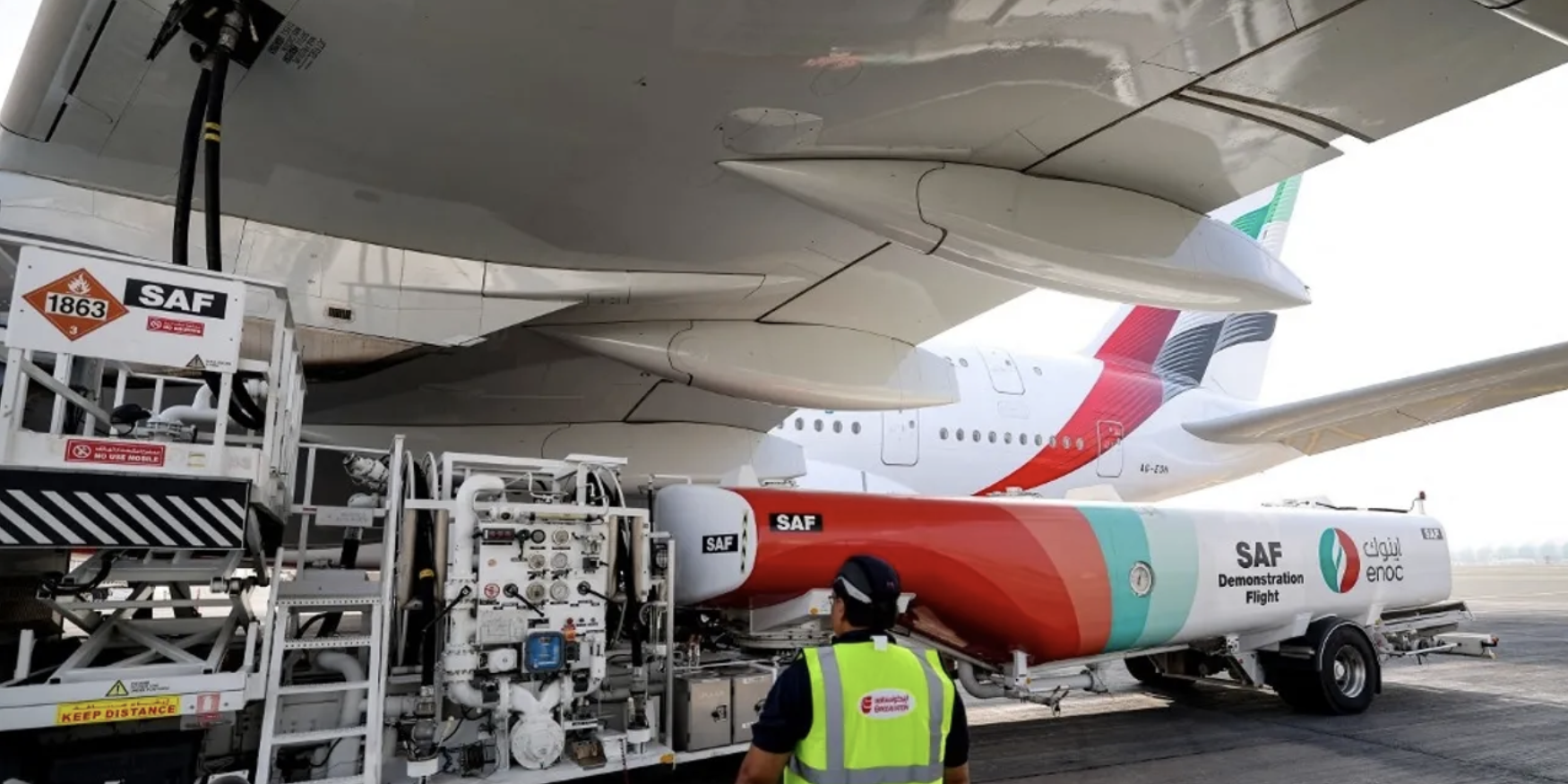Indonesia, the world’s largest producer of crude palm oil (CPO), is stepping up efforts to become a key supplier of sustainable aviation fuel (SAF), leveraging its abundant natural resources. This initiative aligns with global moves towards greener aviation, with countries like Singapore mandating the use of SAF by 2026. Amidst this backdrop, Indonesia has embarked on pilot projects with Garuda Indonesia for palm oil-sourced SAF and discussed potential collaborations, including refinery construction, with Singapore.
Path to Sustainable Aviation
Indonesia’s journey towards sustainable aviation underscores the nation’s commitment to environmental stewardship and innovation. With the aviation industry under pressure to reduce its carbon footprint, the use of biofuels presents a viable solution. Indonesia’s pilot projects involving Garuda Indonesia mark a significant step forward, demonstrating the feasibility and potential of palm oil as a sustainable fuel source. These efforts are further bolstered by high-level discussions between Indonesian Transportation Minister Budi Karya Sumadi and Singapore’s Chee Hong Tat, signaling regional cooperation in the pursuit of greener aviation.
Challenges and Opportunities
While Indonesia’s position as a leading CPO producer offers a unique opportunity to influence the SAF market, experts caution against overlooking environmental and competitive challenges. The sustainability of palm oil production remains a concern, with implications for both the environment and the global acceptance of Indonesian SAF. Energy Shift Institute director Putra Adhiguna highlights the importance of adhering to internationally recognized sustainability standards, ensuring that Indonesia’s SAF not only contributes to carbon reduction but also competes effectively on the global stage. This balance between environmental responsibility and market competitiveness is crucial for the long-term success of Indonesia’s SAF initiative.
Looking Ahead
As the world moves towards a more sustainable future, Indonesia’s role in the SAF market could redefine the aviation industry’s environmental impact. The collaboration with countries like Singapore, coupled with a commitment to sustainability, positions Indonesia at the forefront of the SAF revolution. However, achieving this vision requires navigating complex challenges, from ensuring sustainable production practices to fostering international partnerships. As Indonesia continues to explore the potential of palm oil-based SAF, the country’s journey offers valuable insights into the possibilities and pitfalls of biofuel use in aviation.
Source: BNN Breaking
Disclaimer
This article may contain copyrighted material, the use of which may not have been pre-authorized by the copyright owner. This material is made available for the purpose of giving information and knowledge. The material contained on the Astra Agro website distributed without profit. If you are interested in using copyrighted material from this material for any reason that goes beyond ‘fair use’, you must first obtain permission from the original source.










